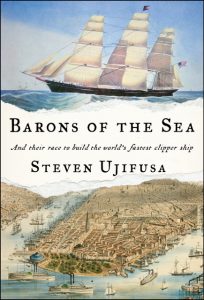Jonas Jonasson. The 100-Year-Old Man Who Climbed Out the Window and Disappeared. Trans. Rod Bradbury. New York: Hachette, 2009. Print.
The 100-Year-Old Man Who Climbed Out the Window and Disappeared is a picaresque romp through the twentieth century. Allan Karlsson feels like a prisoner in the old folks’ home in his small Swedish town. He also may be less than enthusiastic about a birthday party organized by a nursing home director whom he does not like. Before his party begins, Allan does what the title of the book says. And thereby hangs a tale.
Allan wanders around Sweden, teaming up with a former criminal and some current ones, a farmer’s widow who keeps an elephant in her barn, and a few others. Chief Inspector Aronsson is the Javert of the story, trying to track Karlsson down and coming up with some hyperbolic conspiracy theories based in part on his apparent associates.
Unlike Les Miserables, however, when Aronson finally catches up to Karlsson and his coterie, the encounter is hilarious. Anything more would be a spoiler—and anyone who has not read the book would not understand it anyhow.
Paralleling Karlsson’s month’s-long trek through the Swedish countryside is his backstory. In 1918, when he is only thirteen, his father leaves Sweden for revolutionary Russia. His father becomes disillusioned with Communism, but his abandonment of his family has made his son Allan forswear politics for good.
Having nothing to do with politics may have helped Allan Karlsson live to be a hundred, but that does not mean he has nothing to do with politicians. Franco, Stalin, Harry Truman, Charles DeGaulle, Kim Il Sung, and many others appear in the course his long life. His life, then, is the life of the twentieth century.
Like most teens and young men, Allan likes explosions. He becomes a valued employee at a nearby nitroglycerin plan near his home until an experiment goes awry. Then he embarks on what turns out to be an around-the-world journey that covers most of the rest of his life. He is imprisoned in a mental hospital; later he would spend time in the Gulag. But eighty-five to ninety years of his life he is more or less free.
He goes to Spain during the Spanish Civil War, helping the Republicans blow up bridges until they start their purges, so then he helps Franco blow up bridges. He and Franco become friends. Indeed, because of his lack of guile, he is able to make friends will many different types of people.
One of his friends is Albert Einstein’s illegitimate younger brother. (You did not know about him did you?) Allan then gives advice on starting explosions to members of the Manhattan Project. He gets drunk with Vice-President Truman who sees him as a hero who helped end the war, even though he was citizen of a neutral nation.
Through Truman’s connections he ends up in China where he is helping Mme. Chiang Kai-Shek blow up bridges during China’s civil war, but ends up rescuing Jiang Qing, Mao’s wife whom he likes better. Mao is grateful for the rescue of his wife, and Allan participates in a stretch of the Long March.
Civil war is not really for him, so he crosses the Himalayas (not an easy task) to Iran where he is imprisoned and suspected of being a spy. His connection to Truman gets him an audience with Winston Churchill who has come to visit Iran, and so he manages to avoid the executioner.
After returning to Sweden, he is lured aboard a Russian submarine and taken to the Soviet Union. Soviet spies have heard that he was connected with the making of the atom bomb and want him to help them with their own work on one. He meets Stalin and seems to be getting along with him, but no one ever really gets along with Stalin. He and his buddy Herbert Einstein end up in a prison camp near Vladivostok.
They escape, thanks to Allan’s expertise in explosives, to North Korea where they meet Kim Jong Il and Kim Il Sung while the Korean War is going on. Once again they are preparing to meet a firing squad when Mao visits the Kims and Allan is reunited with his old friend, now the Premier of China.
From there he goes to Indonesia, living a pleasant life on the beach for over a decade. Fluent in many languages by this time, he then goes to Paris because Herbert’s Indonesian wife has become the country’s ambassador to France—just in time for the 1968 street riots. He ends up acting as a translator when Presidents DeGaulle and Johnson meet.
He is peripherally involved in the action in Czechoslovakia when Russia invades, and ends up helping the CIA land a high-ranking Red Army officer as a spy. The officer’s information becomes invaluable during the Strategic Arms Limitation Talks between Nixon and Brezhnev. Oh, and there is something that happens in Lithuania and something else in Djibouti.
Did you anyone realize how much one single Swedish eunuch could affect world events?
The 100-Year-Old Man Who Climbed Out the Window and Disappeared is the Twentieth Century in a funny and fractured way—witnessed by someone who has lived through it all. He is apolitical, but he loves explosions. I guess that makes him political after all. The book is a hoot. One certainly could think of it as a funny Forrest Gump or a wider-ranging Brother Where Art Thou odyssey that goes around the world—with maybe some butterfly effect thrown in.
